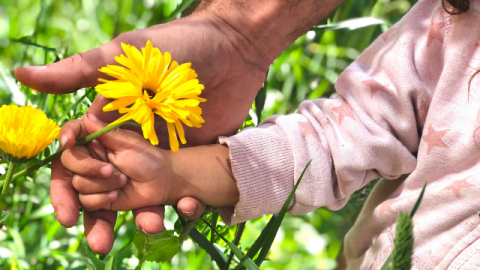Connecting with nature helped many of us cope during the first lockdown in Spring 2020 but new data from Natural England has revealed that this was a short-term relationship for some.
The latest data from Natural England’s People and Nature Survey shows that levels of nature connectedness fell by 25 per cent between April 2020 and April 2021, meaning fewer people reported feeling a part of nature. This matters because we know that higher levels of nature connectedness leads to better mental health.
This topic is explored in the latest blog entry (July 2021) from Miles Richardson, Professor of Human Factors and Nature Connectedness at the University of Derby.
In his blog, Professor Richardson, along with Dr Carly Butler, explains that 'it's not that people have stopped visiting nature, as the proportion of people accessing green and natural spaces grew during lockdown and has stayed higher. But it seems that the boost to 'noticing nature in the quiet times of April and May 2020 has diminished.' Read the blog in full here.
Research has shown that simply noticing nature leads to greater mental wellbeing for people. However, what's clear from Prof Richardson's blog is that just visiting your local green space won't lead to a guaranteed nature connection. Instead, 'it's important to pause and find moments to tune into the sounds, sights, smells and beauty of nature to foster our relationship with it.'
